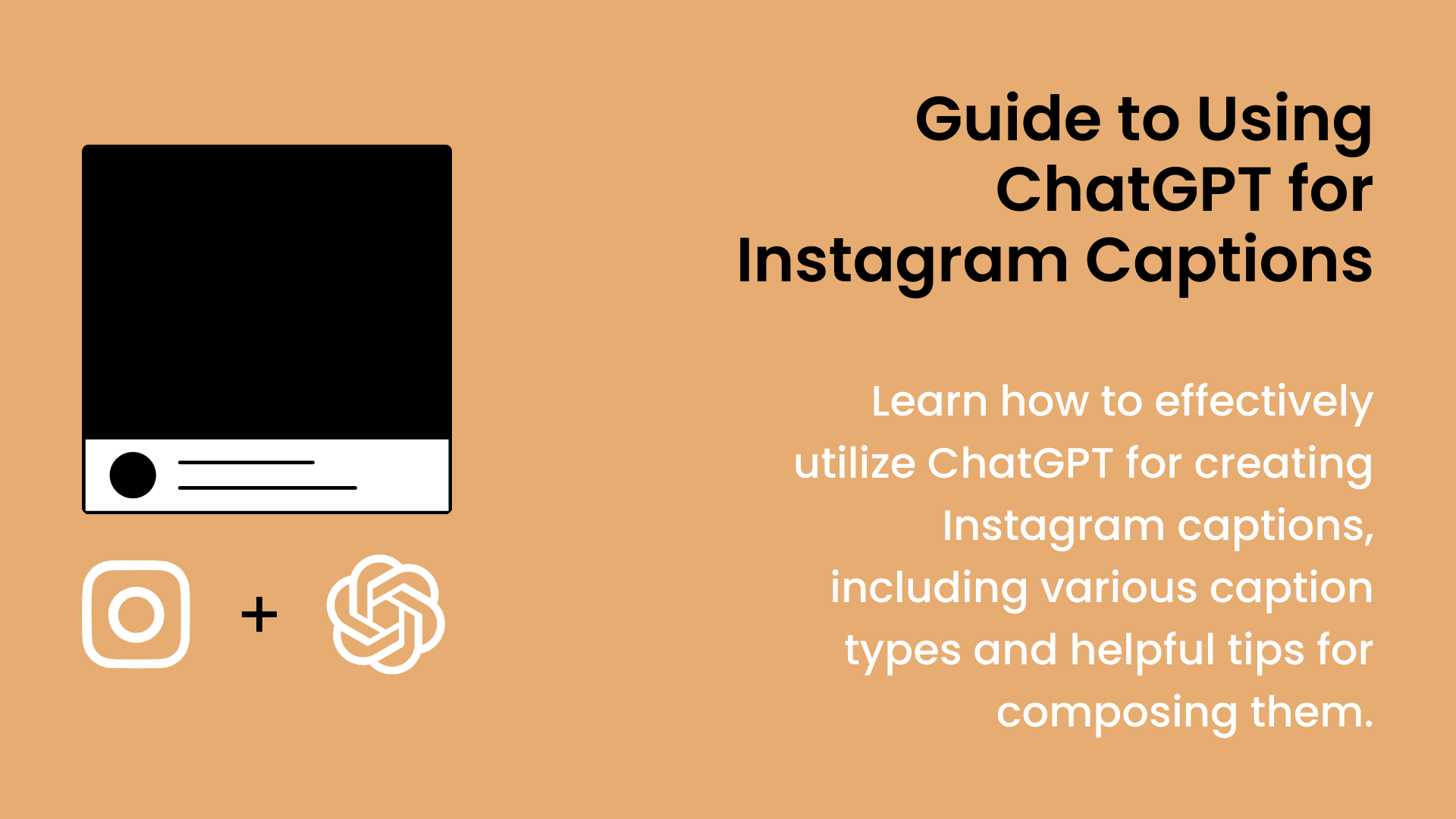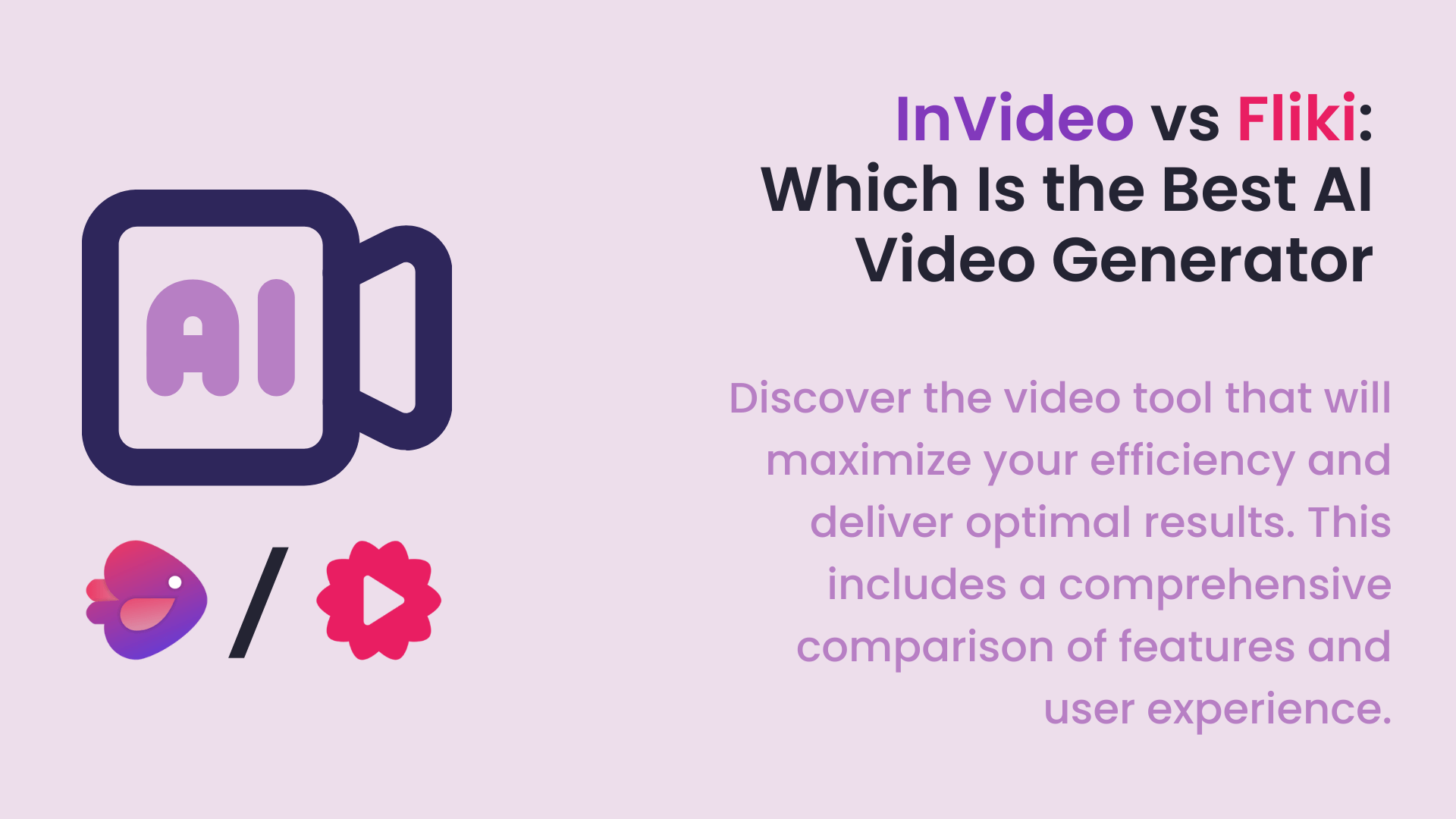ChatGPT and perplexity AI are some of the AI tools that help people generate content as well as do their research effectively.
Last month, when I was analyzing some clients' websites, I discovered that the growth of the AI-referral traffic from these platforms has increased dramatically. What was previously expected has become a reality.
I discovered that a website with having narrow niche can expect a 2000% change in the AI-referral traffic. Divi Extended, a client of StanzaGo, received 2.96% traffic from ChatGPT, but the change in rate was 2093.48%.
That's huge.
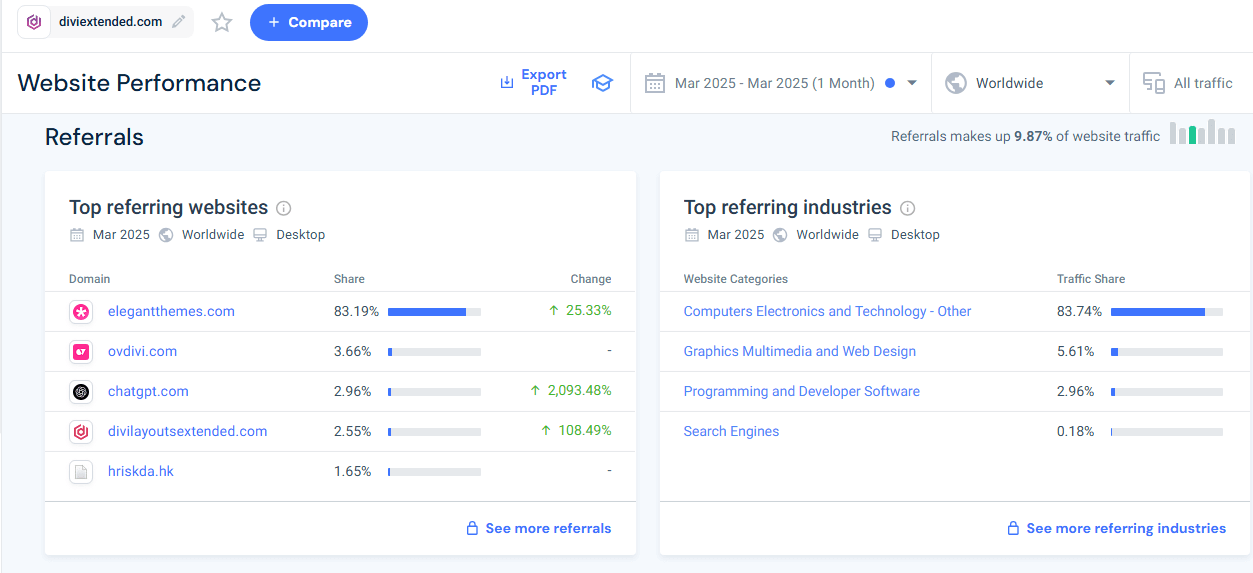
The above screenshot from Similarweb clearly shows the change in the rate of referral traffic. It was surprising, so, I did further analysis and ran Similarweb check on over 100 websites in different niche. The websites I ran the check included, The Verge, WebMd, Topgear, Vogue, and Lonely Planet.
The findings were as follows:
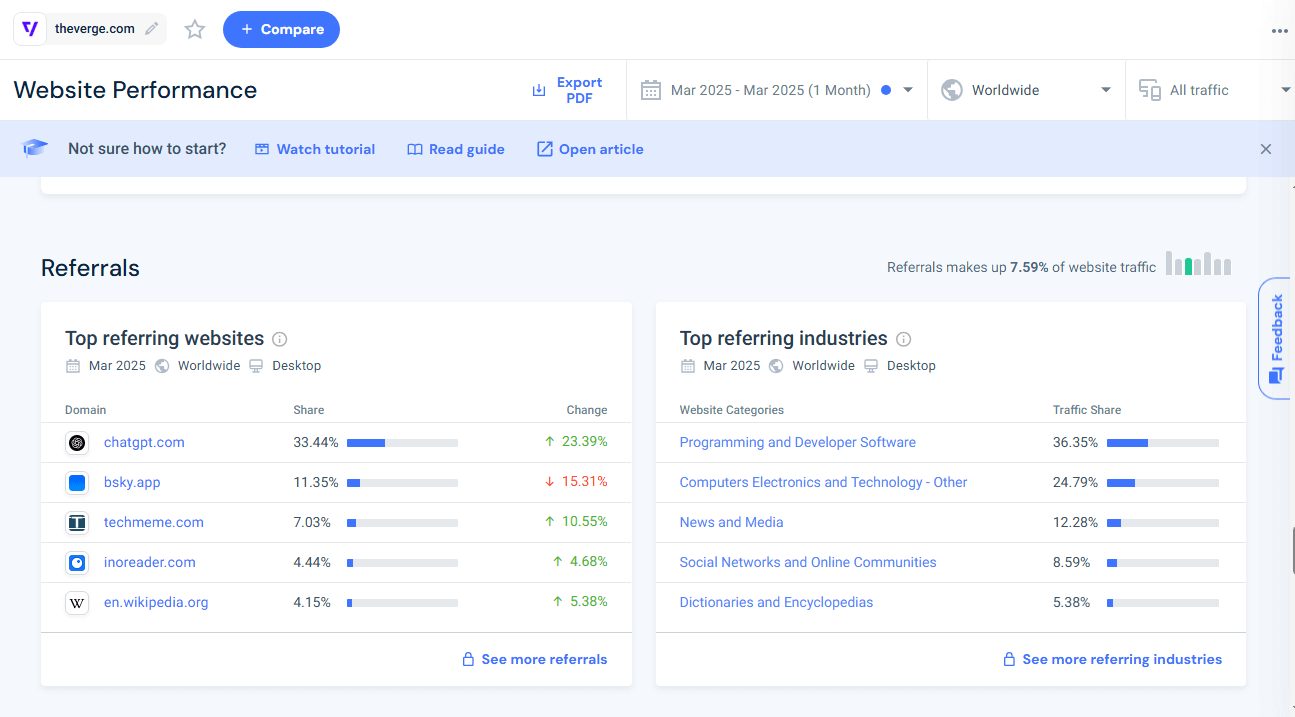
The change in the referral traffic from ChatGPT was 23.39% for The Verge.
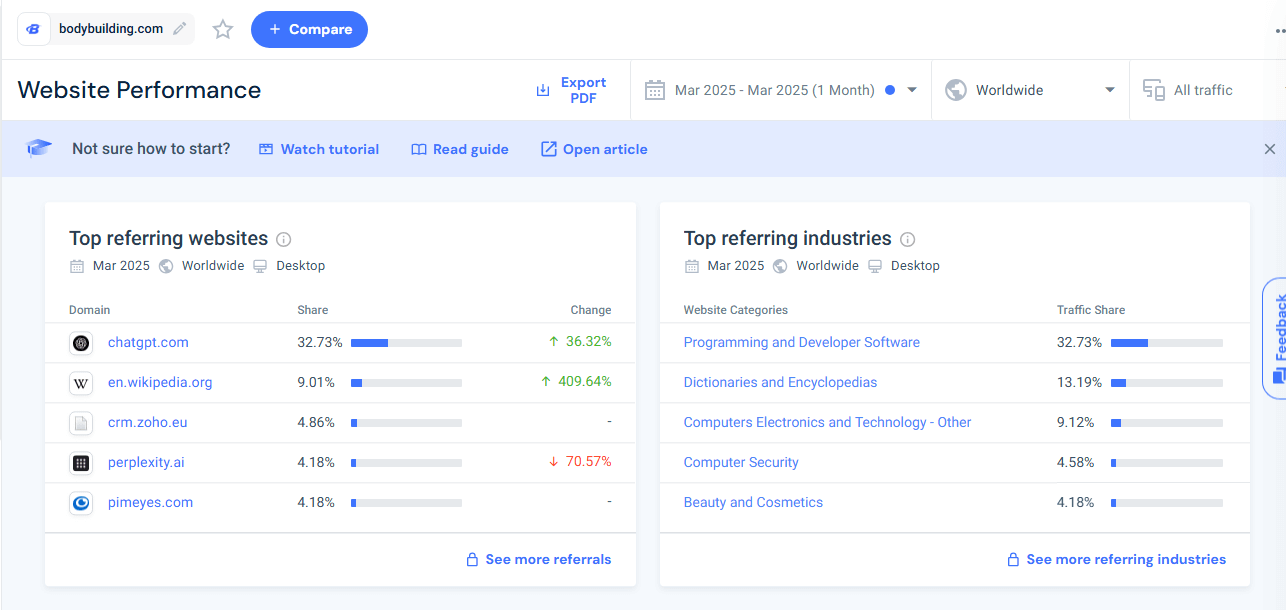
For Bodybuilding.com, it was 36.32%.
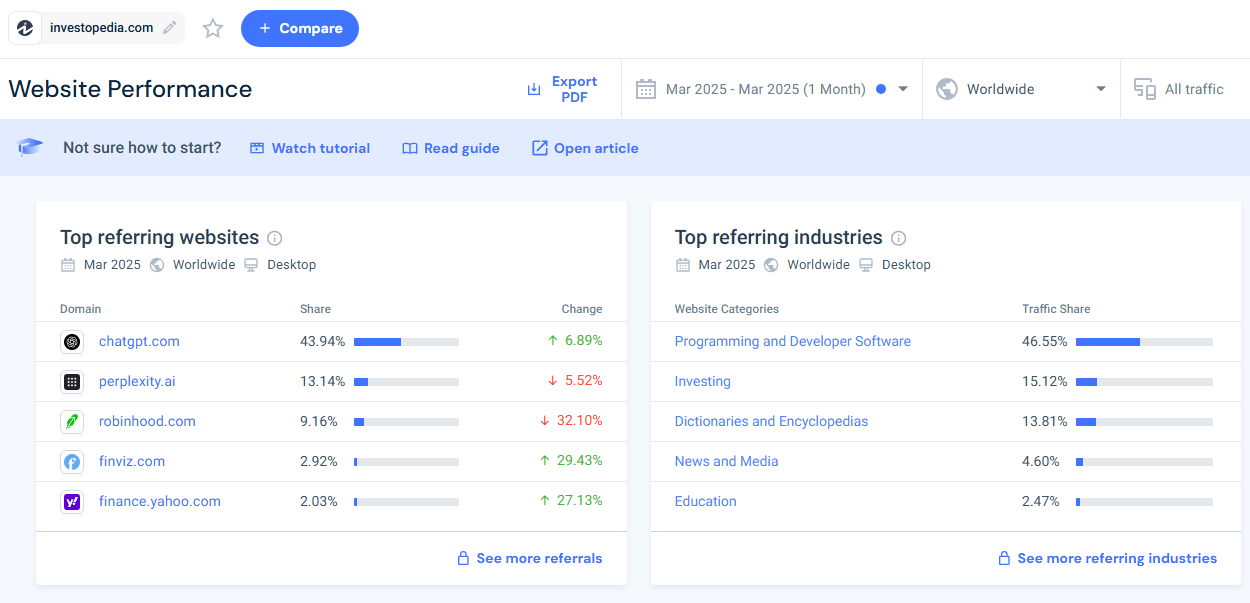
The ChatGPT referral traffic for Investopedia was 43.94% at a 6.89% rate of change.
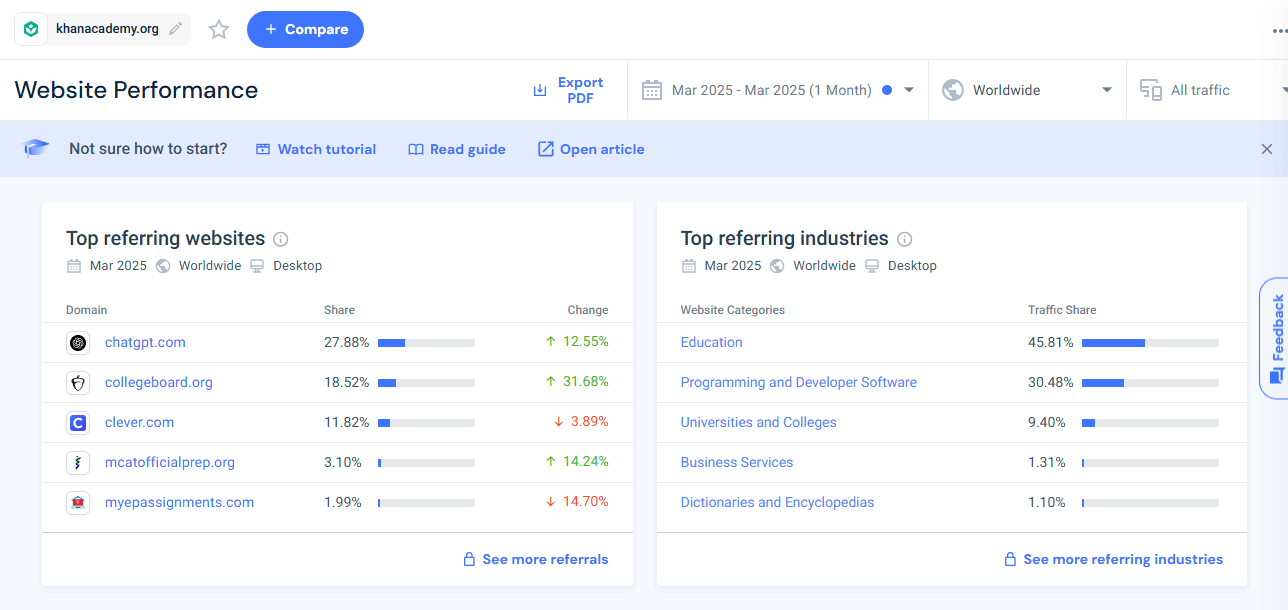
The ChatGPT referral traffic saw a change of 12.55% for Khan Academy
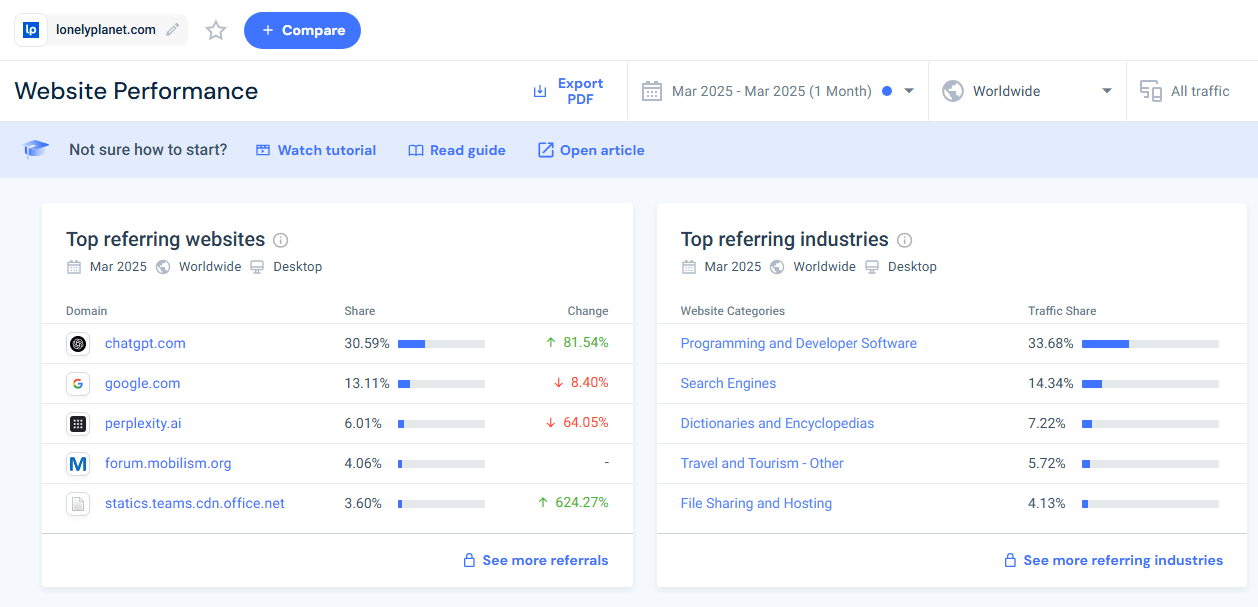
Lonely Plant received traffic from ChatGPT at an 81.54% rate of change.
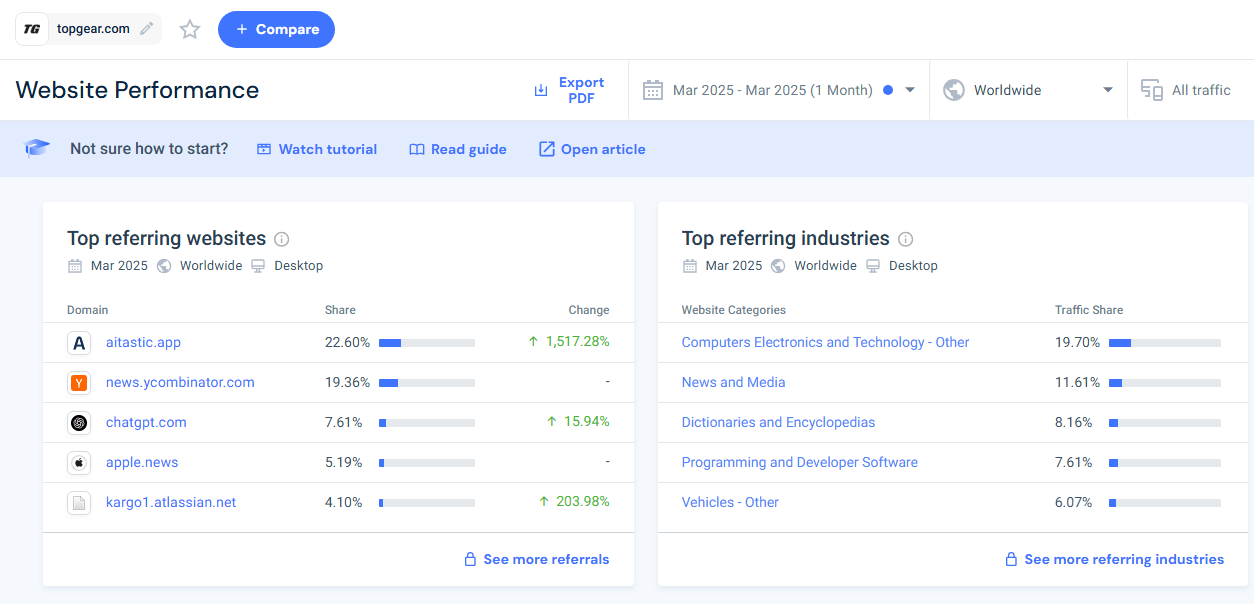
Top Gear received traffic from ChatGPT at a 15.94% rate of change.
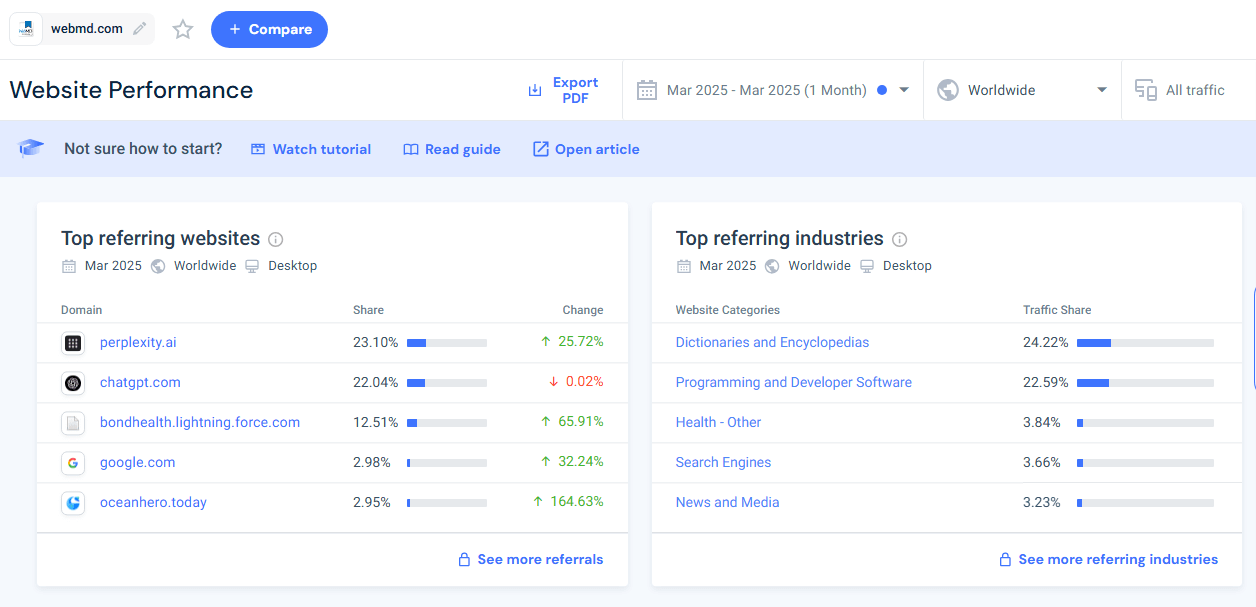
25.72% was the rate of change for WebMD to receive traffic from Perplexity AI.
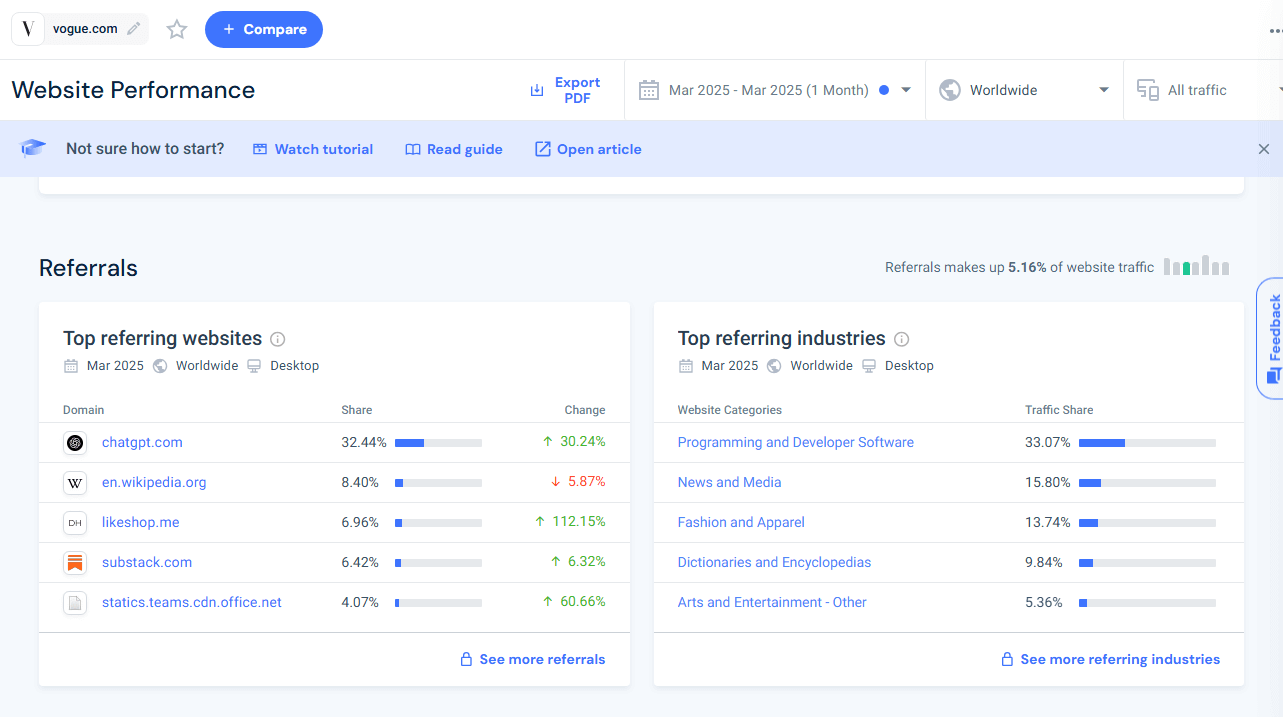
For Vogue.com, the change in the ChatGPT referral traffic was 30.24% as you can see in the above screenshot.
Likewise, other websites in the same domain as the above websites had received traffic from ChatGPT or Perplexity AI at a changing rate of approximately 30%. It showcases how much these platforms can help a website, and in the future, will play a significant role.
Therefore, it becomes essential for users to make their content of a higher quality more than ever, because these platforms will favor human content more, rather than AI-generated.



